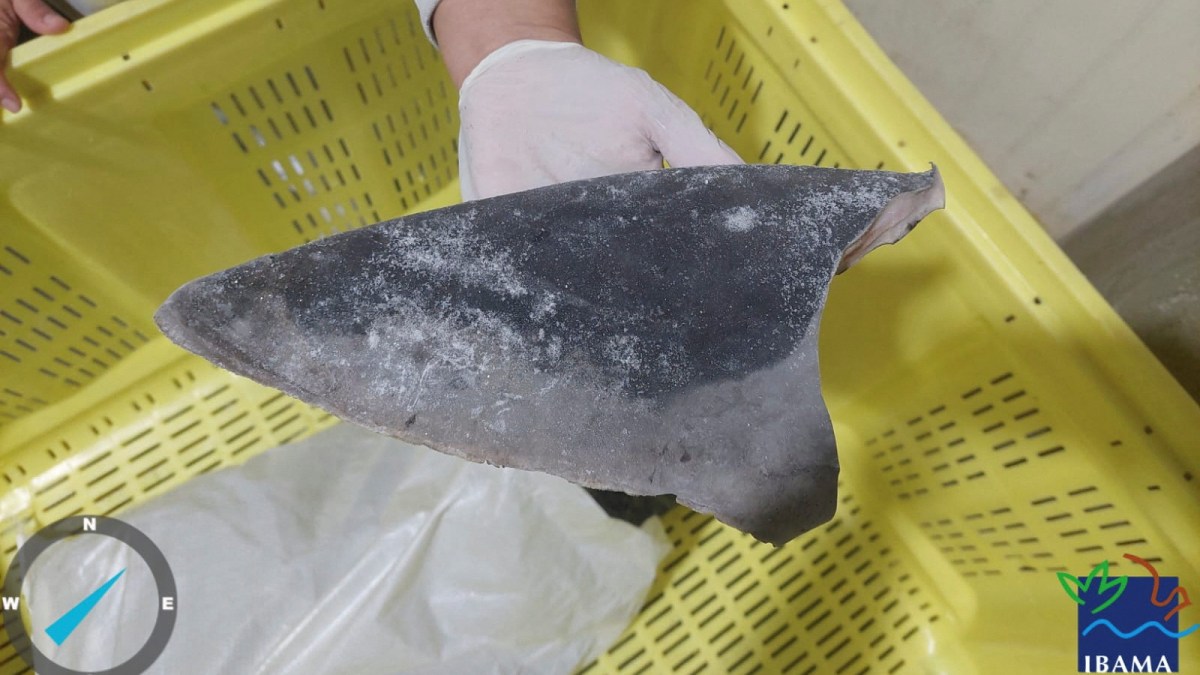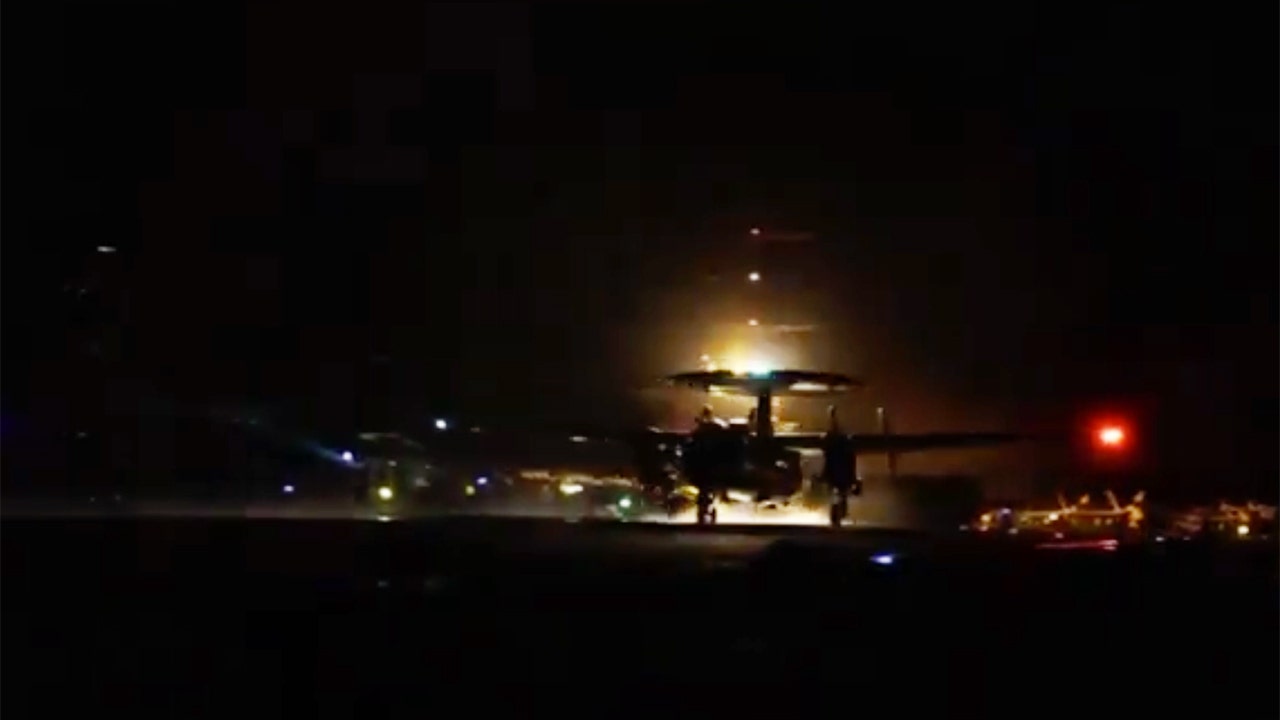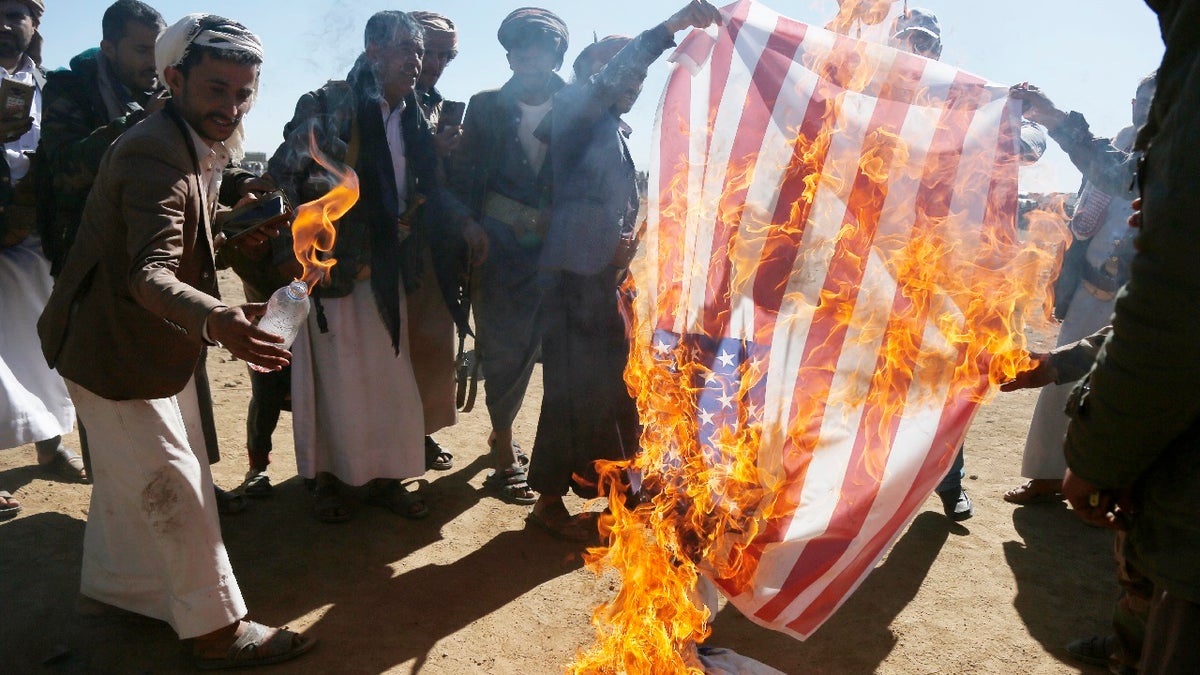World
Brazil seizes world’s biggest consignment of illegal shark fins

Authorities confiscated nearly 29 tonnes of illegally caught fins thought to be on the way to Asia.
Authorities in Brazil have confiscated nearly 29 tonnes of illegal shark fins bound for Asia in what they described as possibly the largest such seizure ever.
Environment protection agency Ibama estimated some 10,000 blue sharks and shortfin mako sharks had been killed for the fins. The two species were added to Brazil’s national list of endangered species last month.
“It is possibly the largest seizure in history of this type of product,” Ibama environmental protection director Jair Schmitt said in a statement.
Ibama’s operation targeted two export companies but others were still under investigation, Schmitt said.
Officials said the firms had illegally used permits for other species to amass the huge haul.
Shark fishing is banned in Brazil.
Fighting the destruction of Brazil’s fauna and flora is a major goal of President Luiz Inacio Lula da Silva’s administration after his predecessor, Jair Bolsonaro, weakened environmental agencies and oversight powers.
“This action is very emblematic because it symbolises the return of Ibama to the protection of the marine environment and especially the protection of the illegal fish trade in the country,” Schmitt added.
A single exporting company in the southern state of Santa Catarina was responsible for 27.6 metric tonnes of fins, while the remainder was seized at Sao Paulo International Airport from the second company, Ibama said, without naming the firms or people involved.
Sea Shepherd Brazil, a nonprofit marine conservation organisation, called on the Brazilian government to ban the shark fin trade and shark meat imports into Brazil, saying this would be vital to protect the species.
Shark fin is seen as a delicacy in parts of Asia, and its consumption – mainly as soup – has long been associated with status and wealth.
The animal parts can fetch up to $1,000 a kilogram in Asia, according to the Wildlife Conservation Society.
Indiscriminate fishing is causing a “drastic reduction” in shark populations worldwide, said Ibama.
However, sharks got a boost in November, when 183 countries approved a plan to protect 54 species from the hammerhead and requiem shark families – two of the most trafficked for shark fin soup – under the Convention on International Trade in Endangered Species (CITES).

World
US military conducts successful airstrikes on Houthi rebel forces in Yemen

The U.S. military confirmed it conducted airstrikes in Yemen, saying it targeted a missile storage site and a command-and-control center operated by Iran-backed Houthi rebels.
U.S. Central Command (CENTCOM) announced the successful strikes in a release Saturday, saying they were meant to “disrupt and degrade” Houthi operations.
“CENTCOM forces conducted the deliberate strikes to disrupt and degrade Houthi operations, such as attacks against U.S. Navy warships and merchant vessels in the Southern Red Sea, Bab al-Mandeb and Gulf of Aden,” CENTCOM said in a news release.
DISAPPROVAL MOUNTS BOTH AT HOME AND ABROAD AS US AVOIDS DIRECT ACTION AGAINST HOUTHI REBELS
The U.S. military successfully conducted airstrikes in Yemen, saying it targeted a missile storage site and a command-and-control site operated by Iran-backed Houthi rebels. (CENTCOM via X)
Footage from CENTCOM showed F/A-18’s taking off. The agency said it also used assets from the Navy and the Air Force.
US NAVY SHIPS REPEL ATTACK FROM HOUTHIS IN GULF OF ADEN
“The strike reflects CENTCOM’s ongoing commitment to protect U.S. and coalition personnel, regional partners and international shipping,” it said.

Houthi followers burn the Israeli and American flags on the outskirts of Sana’a, Yemen. (Mohammed Hamoud/Getty Images)
The attacks against shipping are ongoing, and Houthi militants have vowed to continue until Israel ends its campaign in Gaza.
The terrorist group has targeted more than 100 merchant vessels since the start of the Israel-Hamas war in October 2023.
World
Fact check: How deadly was 2024 for journalists?

An estimated 104 journalists lost their lives in 2024, with Palestine the most dangerous territory.
An estimated 104 journalists were killed worldwide over the past year, according to data shared earlier this month by the International Federation of Journalists (IFJ).
Another report by NGO Reporters Without Borders (RSF) puts the figure at 54, but its methodology means it only includes killings that are considered “directly related” to journalists’ professional activity.
Both organisations say that Palestine is the deadliest place on earth for journalists. More than half (55) of the 104 killings reported by IFJ were Palestinian media professionals in Gaza, while a further six were killed in Lebanon.
At least 138 journalists have been killed in Gaza since the war between Israel and Hamas broke out on 7 October 2023, making the country one of the “most dangerous in the history of modern journalism, behind Iraq, the Philippines and Mexico,” according to the IFJ.
Reporters without Borders has described the number of killings in Gaza as “an unprecedented bloodbath”.
Israel firmly denies it has intentionally targeted any journalists, but has recognised some that have been killed in its airstrikes on Gaza.
The 104 total killings reported by the IFJ is a slight decrease on the 129 they reported on in 2023, which is considered the bloodiest year for journalists since 1990.
How do other world regions fare?
Asia Pacific is the world’s second most dangerous region for journalists, after the Middle East, according to the IFJ.
It recorded 20 deaths in the region in 2024, of which 70% happened in the southern Asian countries of Pakistan, Bangladesh and India.
The region has seen an “upsurge” in violence, according to the IFJ, with deaths increasing sharply from the 12 recorded in 2023.
Africa was the third most dangerous region for journalists at eight deaths, five of them in war-torn Sudan.
The number of journalists killed in south, central and north America has dropped sharply over the past two years, from 30 in 2022 to six in 2023, and another six in 2024. Mexico, considered to be one of the deadliest places in the world to do journalism, continues to see “threats, intimidation, kidnappings and murders” against journalists, particularly due to reporting on drug trafficking.
Number of journalists behind bars on the rise
According to IFJ estimates on 10 December, there were 520 journalists in prison across the world, considerably more than in 2023 (427) and 2022 (375).
China, including Hong Kong, accounts for most of journalists behind bars, followed by Israel and Myanmar.
The IFJ says the figures show how “fragile” the independent press is and how “risky and dangerous” the profession of journalism has become.
World
Italian state railways plans 1.3 bln euro investment in solar plant

-

 Politics1 week ago
Politics1 week agoCanadian premier threatens to cut off energy imports to US if Trump imposes tariff on country
-
/cdn.vox-cdn.com/uploads/chorus_asset/file/25789444/1258459915.jpg)
/cdn.vox-cdn.com/uploads/chorus_asset/file/25789444/1258459915.jpg) Technology1 week ago
Technology1 week agoOpenAI cofounder Ilya Sutskever says the way AI is built is about to change
-

 Politics1 week ago
Politics1 week agoU.S. Supreme Court will decide if oil industry may sue to block California's zero-emissions goal
-
/cdn.vox-cdn.com/uploads/chorus_asset/file/25546252/STK169_Mark_Zuckerburg_CVIRGINIA_D.jpg)
/cdn.vox-cdn.com/uploads/chorus_asset/file/25546252/STK169_Mark_Zuckerburg_CVIRGINIA_D.jpg) Technology1 week ago
Technology1 week agoMeta asks the US government to block OpenAI’s switch to a for-profit
-

 Business1 week ago
Business1 week agoFreddie Freeman's World Series walk-off grand slam baseball sells at auction for $1.56 million
-
/cdn.vox-cdn.com/uploads/chorus_asset/file/23951353/STK043_VRG_Illo_N_Barclay_3_Meta.jpg)
/cdn.vox-cdn.com/uploads/chorus_asset/file/23951353/STK043_VRG_Illo_N_Barclay_3_Meta.jpg) Technology1 week ago
Technology1 week agoMeta’s Instagram boss: who posted something matters more in the AI age
-
News1 week ago
East’s wintry mix could make travel dicey. And yes, that was a tornado in Calif.
-
/cdn.vox-cdn.com/uploads/chorus_asset/file/24924653/236780_Google_AntiTrust_Trial_Custom_Art_CVirginia__0003_1.png)
/cdn.vox-cdn.com/uploads/chorus_asset/file/24924653/236780_Google_AntiTrust_Trial_Custom_Art_CVirginia__0003_1.png) Technology2 days ago
Technology2 days agoGoogle’s counteroffer to the government trying to break it up is unbundling Android apps







/cdn.vox-cdn.com/uploads/chorus_asset/file/25535557/STK160_X_TWITTER__D.jpg)








